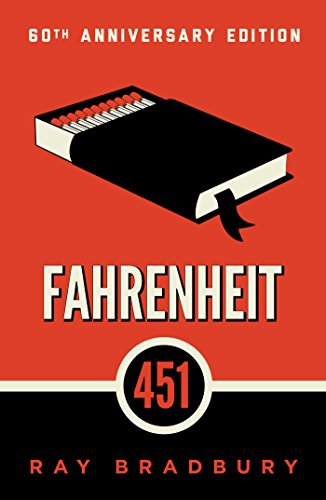Loki and the Locus of Identity
/Warning: This article contains spoilers of the Disney+ series “Loki.”
Loki is a television series found on Disney’s streaming service called Disney+. It follows the life of Loki after he swiped the tesseract and was swept into another dimension. He is captured for crimes against time by the TVA (Time Variance Authority). As the series progresses, Loki introspectively reviews his life, his multiple failures, and what makes a Loki a Loki. He encounters other variations of himself by the integration of beings across multiple dimensional timelines. He comes to meet a female version of himself who calls herself Sylvie. Oddly, he finds that he finds the love of his life in a deviation of himself. That is to say, the only love of his life is himself.
Loki’s quest to find his identity reminds me of an episode of the television series The Big Bang Theory. In one episode, the gregariously free-spirited Penny meets the hyper-analytical Dr. Beverly Hofstader who is mother to Dr. Leonard Hofstader, Penny’s next-door neighbor and future husband. Beverly uses her psychoanalytical skills to inquire into the life of the vivacious young Penny. At one point, Penny notes that she is an aspiring actress. Beverly coldly retorts, “Why?” She goes on to pinpoint that Penny suffers from an external locus of identity. That is, Penny finds her sense of identity in what others think of her. Likewise, it may be said of Loki that he found his value of identity by what others thought of him. Perhaps Loki desired to rule the world because of his deep insecurities about what others thought of him. If he ruled the world, then everyone must appreciate him. Yet as one evaluates three loci of identity, one begins to find one option is much better than the other two.
The External Locus of Identity: To Find One’s Value in What Others Think
Every person likes to be liked. As the saying goes, people will buy things they don’t need, with money they don’t have, to impress people they don’t even like. For this reason, individuals will spend exorbitant amounts of money for the latest and hippest clothing, the fanciest cars, and the most luxurious homes to stand out as an impressive person. Others will spend countless hours in the gym to chisel themselves into the image of a Grecian god or goddess so as to receive the approval of individuals in their community. An invisible form of competition emanates in the mental state of a person to see if they can outdo everyone else around them. The problem with the external locus of identity is twofold. First, the internal competition against all others is doomed for failure because somewhere and somehow, someone is always better than you in some capacity. The Westernized conception of competitiveness has its setbacks particularly when a person sets oneself against all others. Additionally, the person will never rest and appreciate what one possesses because he or she is always seeing to best their adversaries. In contrast, the apostle Paul noted that he had “learned to be content in whatever circumstances I find myself” (Phil. 4:11, CSB). Second, the internal competition is impossible to win because not even Jesus himself could please everyone. The early church taught that Jesus was sinless (2 Cor. 5:21; Rom. 3:25-26; Gal. 3:13). As such, Jesus always said the right things, always thought the right things, and always behaved appropriately. Yet he still managed to find himself on a Roman cross condemned with criminals, betrayed by a close compatriot, and buried in a borrowed tomb. If Jesus, the exemplification of perfection, could not please everyone, what makes us think that we can?
The Internal Locus of Identity: To Find One’s Value by How One Sees Oneself
Some might say that the better option of identity is found by looking within oneself to find one’s identity. While a better alternative than the former, it still elicits problems. John Hare wrote a book entitled The Moral Gap where he identifies a gap between the moral demands placed upon us, both internally and externally, and our ability to meet them. Sagely, Hare denotes that “we see people constantly failing by the moral standards they and we uphold at least verbally, and we want to hold them accountable for each failure.”[1] In response, the church has taken two attitudes to the problem: 1) moral idealism, which holds that people are capable of living good lives and holds them accountable for such, 2) cynical realism, holding that no one can live a virtuous life, thereby removing all blame upon a person for an indiscretion committed.[2] The apostle Paul lamented, “For I do not understand what I am doing, because I do not practice what I want to do, but I do what I hate” (Rom. 7:15, CSB). If a person finds one’s sense of identity only within oneself, the person’s inability to live perfectly could cause great stress and strain on one’s mental and emotional faculties. Not to mention, the mind plays horrid tricks on a person much like a funhouse mirror, leading to false notions of oneself (i.e., he/she is not worthy of love, he/she will never do better in life, and so on). Is there not a better way?
The Upward Locus of Identity: Seeing Oneself through the Lens of God
Thankfully, a better choice is found in possessing an upward locus of identity. By this, it is meant that a person finds one’s worth and value in God’s love and value for the person. This perspective is not unique in Christian thinking. In his eighth book on The Trinity, Augustine argued that God is the good and that human beings find ultimate happiness and value when they enter into a loving relationship with a good God.[3] By this union, God’s righteousness unites with the receptive person and guides the person to live ethically and morally. Hare states, “The emphasis is not on Christ’s righteousness being external to us, but on the unity he establishes between himself and us.”[4] Granted, professing Christians do not always act ethically. However, it can be said that moral transformation can only come about by the unity with the good God and continued dependence on his moral empowerment. Ultimately, a person’s sense of worth, value, and ethics is vastly intensified and expanded when a person sees oneself through the lens of God. Romans 8:31-39 becomes an integral aspect of one’s sense of worth as it is realized that nothing can separate him or her from the awe-inspiring love of God.
Conclusion
Much, much more could be said about this topic. But to conclude, think of the following scenario. How would the fictional Loki’s character have changed had he been able to view himself through the Creator’s lens? Would he have sought a better relationship with his brother Thor? Would he have resolved the conflicts he had with his father Odin? What about Penny of the Big Bang Theory? Would she still have desired to be an actress if she was not as concerned with how other people viewed her? While Loki and Penny are fictional characters, their internal conflicts and sense of self-worth are far from make-believe. Real-life people deal with these issues every day. Loki and Penny can serve as parables for us to exemplify the need to view ourselves not as others see us or even how we see ourselves, but rather to see ourselves by the divine viewpoint of God. Experiencing the love and moral transformation that comes from a real-life omnibenevolent God is much better than what any writer of fiction could ever muster.
About the Author
Brian G. Chilton is the founder of BellatorChristi.com, the host of The Bellator Christi Podcast, the author of the Layman’s Manual on Christian Apologetics, and a Ph.D. Candidate of the Theology and Apologetics program at Liberty University. He received his Master of Divinity in Theology from Liberty University (with high distinction); his Bachelor of Science in Religious Studies and Philosophy from Gardner-Webb University (with honors); and received certification in Christian Apologetics from Biola University. Brian is a member of the Evangelical Theological Society and the Evangelical Philosophical Society. Brian has served in pastoral ministry for nearly 20 years and currently serves as a clinical chaplain, an editor for the Eleutheria Journal, and an Associate Editor for MoralApologetics.com.
https://www.amazon.com/Laymans-Manual-Christian-Apologetics-Essentials/dp/1532697104
© 2021. BellatorChristi.com.
[1] John E. Hare, The Moral Gap: Kantian Ethics, Human Limits, and God’s Assistance, Oliver O’Donovan, ed (Oxford, UK: Clarendon, 1996), 140.
[2] Ibid.
[3] Augustine of Hippo, On the Trinity, in St. Augustine: On the Holy Trinity, Doctrinal Treatises, Moral Treatises, Philip Schaff, ed, Arthur West Haddan, trans, vol. 3 of A Select Library of the Nicene and Post-Nicene Fathers of the Christian Church, first series (Buffalo, NY: Christian Literature Company, 1887), 244; David Baggett and Marybeth Baggett, The Morals of the Story: Good News about a Good God (Downers Grove, IL: IVP Academic, 2018), 66.
[4] Hare, The Moral Gap, 263.



















